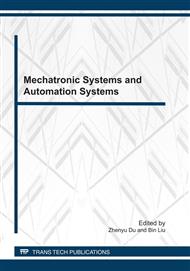[1]
S. Basu: The conservatism principle and the asymmetric timeliness of earnings, Journal of Accounting and Economics Vol. 24(1997), p.3–37.
DOI: 10.1016/s0165-4101(97)00014-1
Google Scholar
[2]
R. Watts: Conservatism in accounting. Part II: Evidence and research opportunities, Accounting Horizons Vol. 17(2003), p.287–301.
DOI: 10.2308/acch.2003.17.4.287
Google Scholar
[3]
W. Guay, and R. Verrecchia: Discussion of an economic framework for conservative accounting and Bushman and Piotroski (2006) , Journal of Accounting & Economics Vol. 42(2006), pp.149-165.
DOI: 10.1016/j.jacceco.2006.03.003
Google Scholar
[4]
R. Bushman, and J. Piotroski: Financial reporting incentives for conservative accounting: The influence of legal and political institutions. Journal of Accounting and Economics Vol. 42 (2006), pp.107-148.
DOI: 10.1016/j.jacceco.2005.10.005
Google Scholar
[5]
R. Lafond, and R. Sugata: Managerial ownership and accounting conservatism, Journal of Accounting Research Vol. 46(2008), pp.101-135.
DOI: 10.1111/j.1475-679x.2008.00268.x
Google Scholar
[6]
R. La Porta, F. Lopez-De-Silanes, A. Shleifer, and R. W. Vishny: Corporate ownership around the world, The Journal of Finance Vol. 54(1999), pp.471-517.
DOI: 10.1111/0022-1082.00115
Google Scholar
[7]
S. Johnson, and F. La Porta, A. Shleifer, and R. Vishny: Tunneling, American Economic Review Vol. 90(2000), pp.22-27.
DOI: 10.1257/aer.90.2.22
Google Scholar
[8]
Ch. Bai, and L. Qiao, J. Lu, Frank ,M. Song, and J. Zhang: Corporate governance and market valuation in China, Journal of Comparative Economics Vol. 32(2004), p.599–616.
DOI: 10.1016/j.jce.2004.07.002
Google Scholar
[9]
J. Fan, and T. J. Wong: Corporate ownership structure and the informativeness of accounting earnings in east Asia, Journal of Accounting and Economics Vol. 33(2002), p.401–25.
DOI: 10.1016/s0165-4101(02)00047-2
Google Scholar
[10]
R. Ball, and L. Shivakumar: Earnings quality in UK private firms: comparative loss recognition timeliness, Journal of Accounting and Economics 39(2005), pp.83-128.
DOI: 10.1016/j.jacceco.2004.04.001
Google Scholar
[11]
M. Firth, P. Fung, and O. Rui: Ownership, two-tier board structure, and the informationtiveness of earnings-evidence from China, Journal of Accounting and Public Policy Vol. 26(2007), pp.463-496.
DOI: 10.1016/j.jaccpubpol.2007.05.004
Google Scholar


